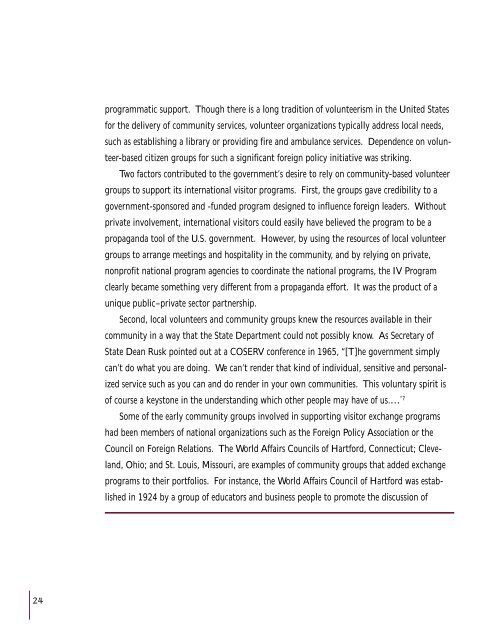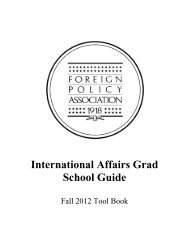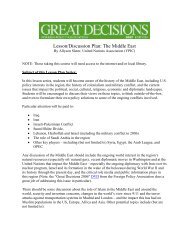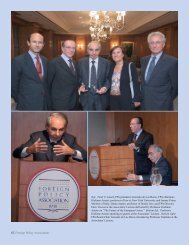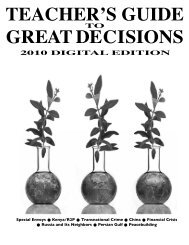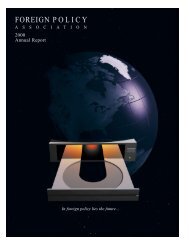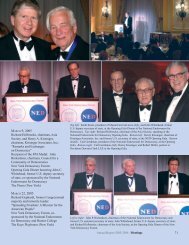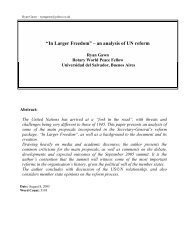A Salute to Citizen Diplomacy - Foreign Policy Association
A Salute to Citizen Diplomacy - Foreign Policy Association
A Salute to Citizen Diplomacy - Foreign Policy Association
You also want an ePaper? Increase the reach of your titles
YUMPU automatically turns print PDFs into web optimized ePapers that Google loves.
24<br />
programmatic support. Though there is a long tradition of volunteerism in the United States<br />
for the delivery of community services, volunteer organizations typically address local needs,<br />
such as establishing a library or providing fire and ambulance services. Dependence on volunteer-based<br />
citizen groups for such a significant foreign policy initiative was striking.<br />
Two fac<strong>to</strong>rs contributed <strong>to</strong> the government’s desire <strong>to</strong> rely on community-based volunteer<br />
groups <strong>to</strong> support its international visi<strong>to</strong>r programs. First, the groups gave credibility <strong>to</strong> a<br />
government-sponsored and -funded program designed <strong>to</strong> influence foreign leaders. Without<br />
private involvement, international visi<strong>to</strong>rs could easily have believed the program <strong>to</strong> be a<br />
propaganda <strong>to</strong>ol of the U.S. government. However, by using the resources of local volunteer<br />
groups <strong>to</strong> arrange meetings and hospitality in the community, and by relying on private,<br />
nonprofit national program agencies <strong>to</strong> coordinate the national programs, the IV Program<br />
clearly became something very different from a propaganda effort. It was the product of a<br />
unique public–private sec<strong>to</strong>r partnership.<br />
Second, local volunteers and community groups knew the resources available in their<br />
community in a way that the State Department could not possibly know. As Secretary of<br />
State Dean Rusk pointed out at a COSERV conference in 1965, “[T]he government simply<br />
can’t do what you are doing. We can’t render that kind of individual, sensitive and personalized<br />
service such as you can and do render in your own communities. This voluntary spirit is<br />
of course a keys<strong>to</strong>ne in the understanding which other people may have of us.… ”7<br />
Some of the early community groups involved in supporting visi<strong>to</strong>r exchange programs<br />
had been members of national organizations such as the <strong>Foreign</strong> <strong>Policy</strong> <strong>Association</strong> or the<br />
Council on <strong>Foreign</strong> Relations. The World Affairs Councils of Hartford, Connecticut; Cleveland,<br />
Ohio; and St. Louis, Missouri, are examples of community groups that added exchange<br />
programs <strong>to</strong> their portfolios. For instance, the World Affairs Council of Hartford was established<br />
in 1924 by a group of educa<strong>to</strong>rs and business people <strong>to</strong> promote the discussion of


